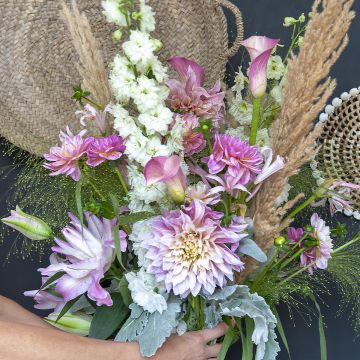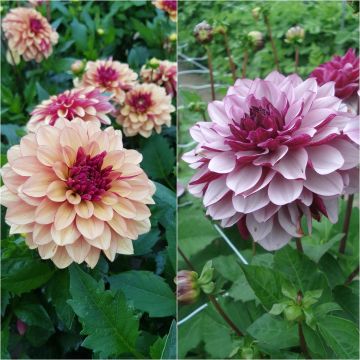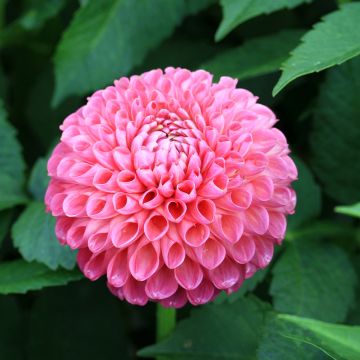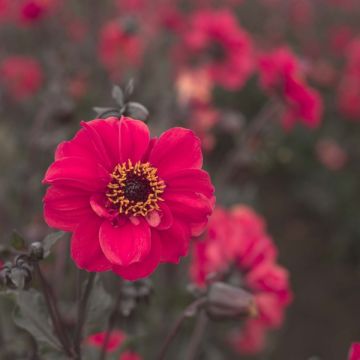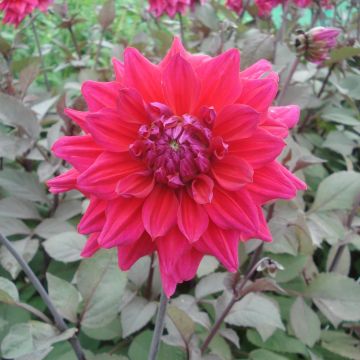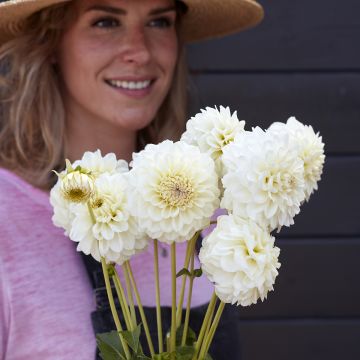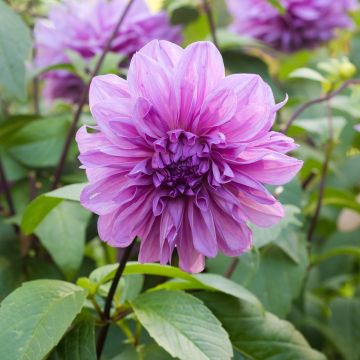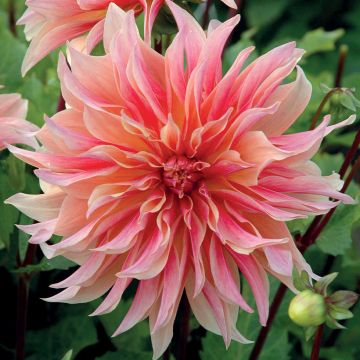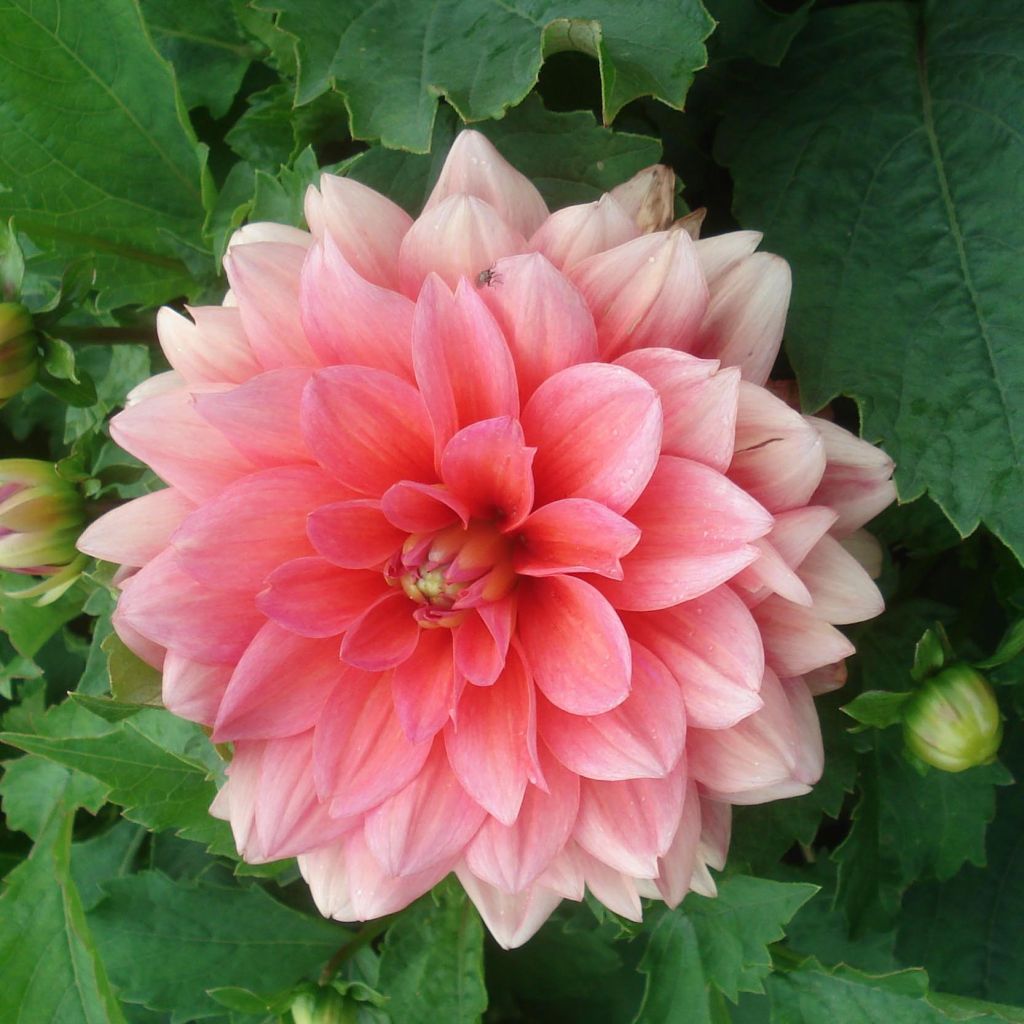

Dahlia Berliner Kleene
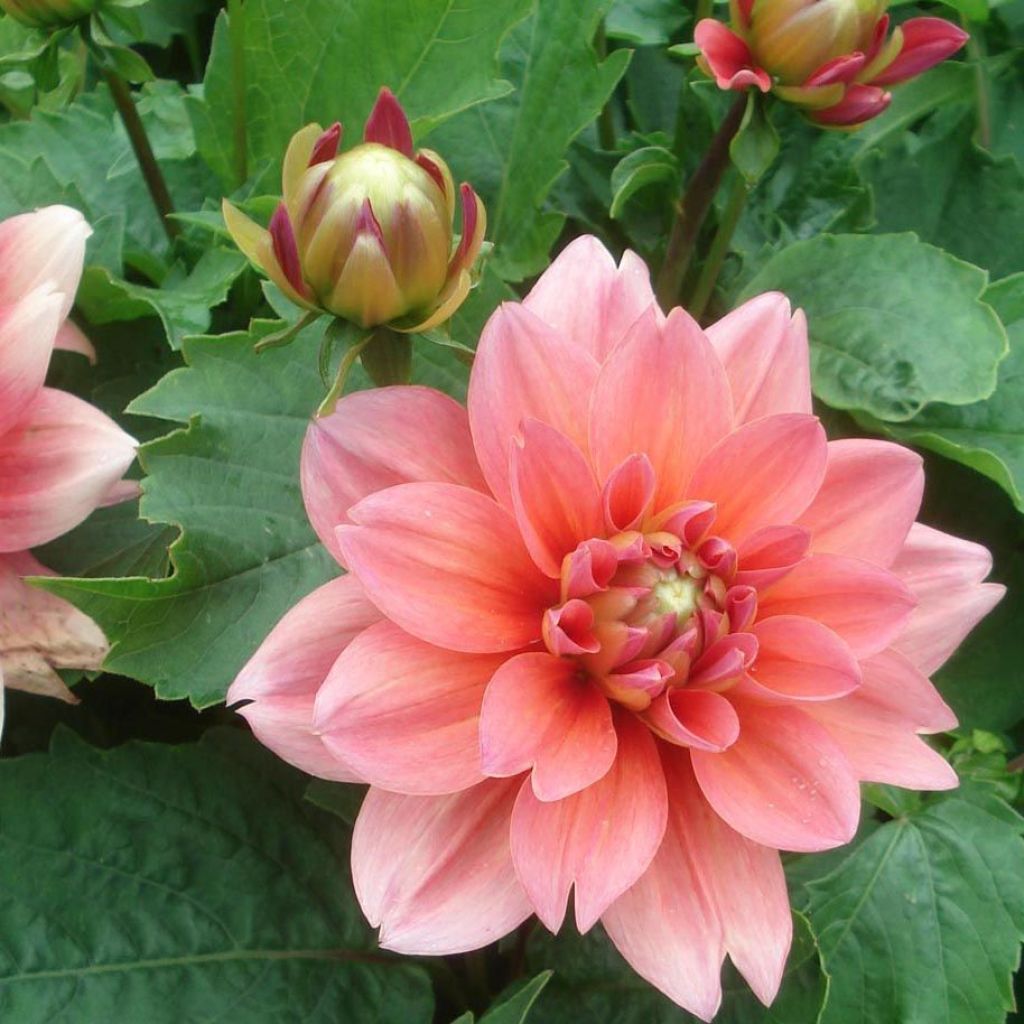

Dahlia Berliner Kleene
View more pictures
Hide images
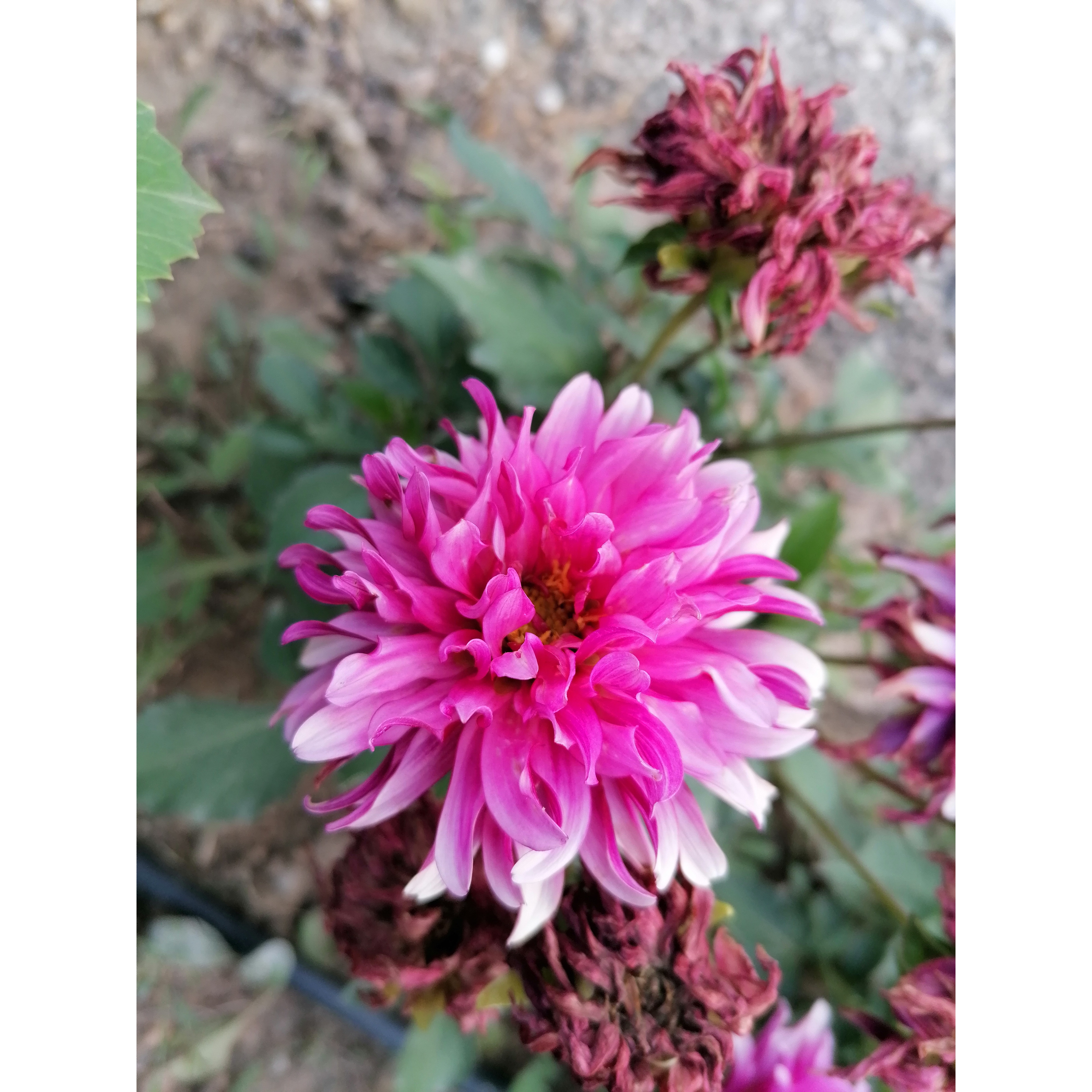
Amélie P.

Amélie P. • 06 FR
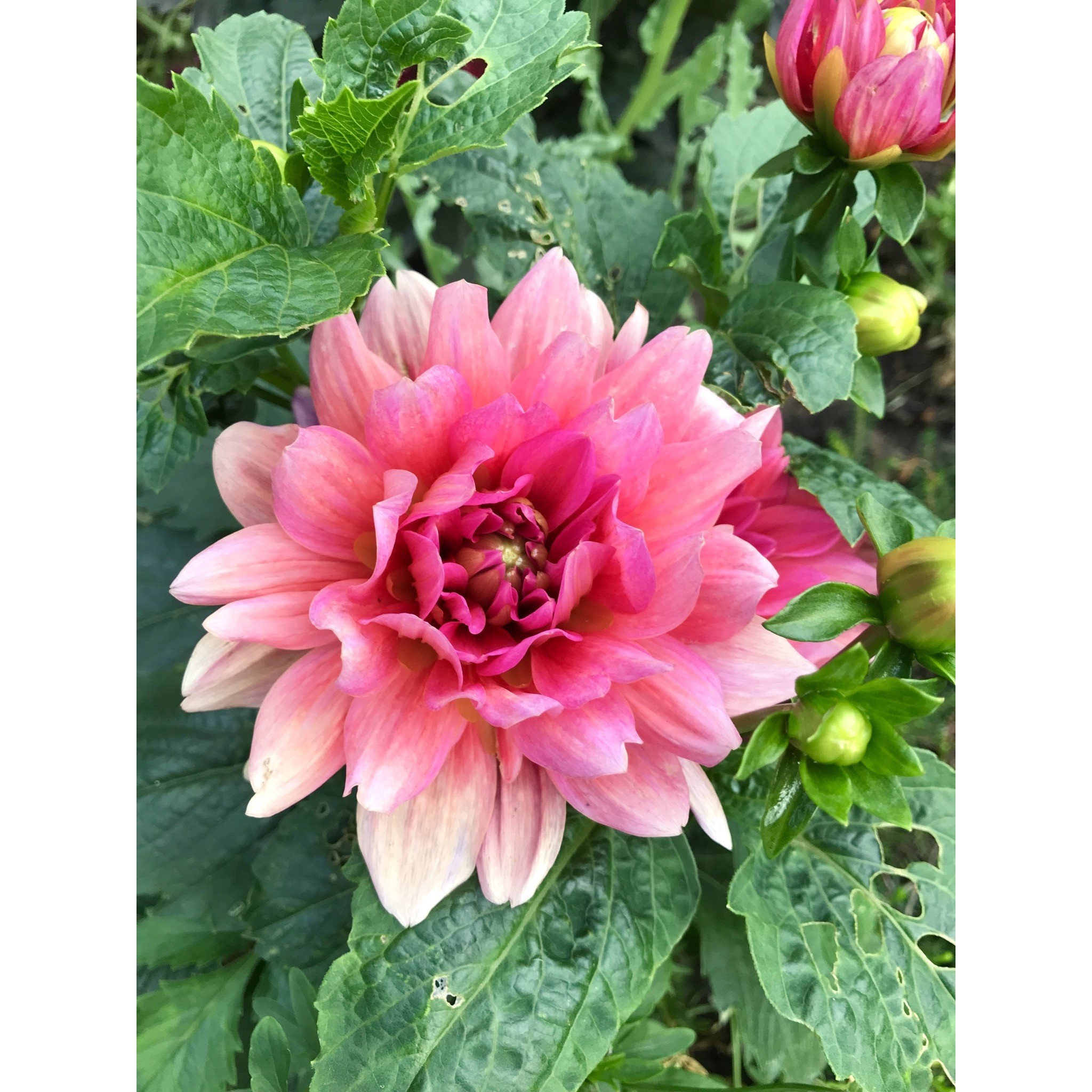
Armelle B.

Armelle B. • 41 FR
Dahlia Berliner Kleene
Dahlia Berliner Kleene
Dahlia
No idea if it's pretty, because out of the 5 bulbs purchased, only 1 bloomed out of the 3 that started to shoot. The one that bloomed is a big yellow one, and it's not one of the ones I ordered.
Sissi, 29/09/2024
Special offer!
Receive a €20 voucher for any order over €90 (excluding delivery costs, credit notes, and plastic-free options)!
1- Add your favorite plants to your cart.
2- Once you have reached €90, confirm your order (you can even choose the delivery date!).
3- As soon as your order is shipped, you will receive an email containing your voucher code, valid for 3 months (90 days).
Your voucher is unique and can only be used once, for any order with a minimum value of €20, excluding delivery costs.
Can be combined with other current offers, non-divisible and non-refundable.
Home or relay delivery (depending on size and destination)
Schedule delivery date,
and select date in basket
This plant carries a 6 months recovery warranty
More information
We guarantee the quality of our plants for a full growing cycle, and will replace at our expense any plant that fails to recover under normal climatic and planting conditions.
Would this plant suit my garden?
Set up your Plantfit profile →
Description
The Dwarf Dahlia 'Berliner Kleene' displays bright colours during its very long flowering period. The coral pink illuminated with cream white of the heads will accompany your flower beds throughout the summer and a good part of autumn. The shape of its flowers classifies it in the category of Decorative Dahlias.
Dahlias belong to the large family of Asteraceae; they are initially from the high plateaus of Mexico. At present, the approximately 20,000 horticultural varieties obtained by humans have invaded, to our great pleasure, gardens all over the world. The flowers of Decorative Dahlias are thicker than wide and often large. 'Berliner Kleene' heads are 10 cm (4in) in diameter; they are full and well double. The outermost ligules are slightly tubular and revolute (curved upwards). They are coral pink with cream-white tips. The central florets are shorter and form a tight bud before the end of anthesis. Being a dwarf Dahlia, the compact clump will not exceed 40 cm (16in) in height. The leaves are composed of very denticulate lobes. The almost black stems and the dark green foliage significantly contribute to the plant's decorative effect.
The flowering of Dahlias is exceptionally long; it takes place from July to November. To promote flower reblooming and extend this flowering period, remove faded flowers.
Dahlias are easy to grow but require a minimum of work as the tubers need to be stored in winter. Along the edge of a flower bed, in a border or pots, combine the colours of this dahlia with African Lilies, Shangri La Peach Verbena, create a colour contrast with one of the wide varieties of asters and add a feathery grass for a refined and romantic tableau.
Today, essential in gardens, Dahlias were initially cultivated in Mexico as a root vegetable. Their poor taste quickly assigned them the status of an ornamental plant, but they are still welcome in vegetable gardens to bring colour to the vegetables.
Report an error about the product description
Dahlia Berliner Kleene in pictures
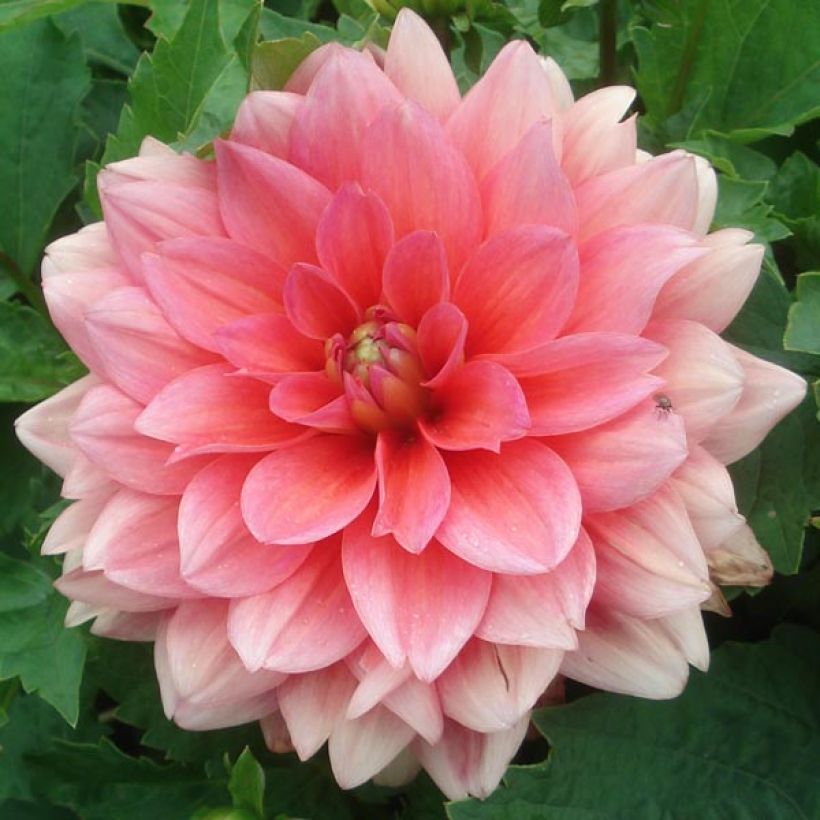

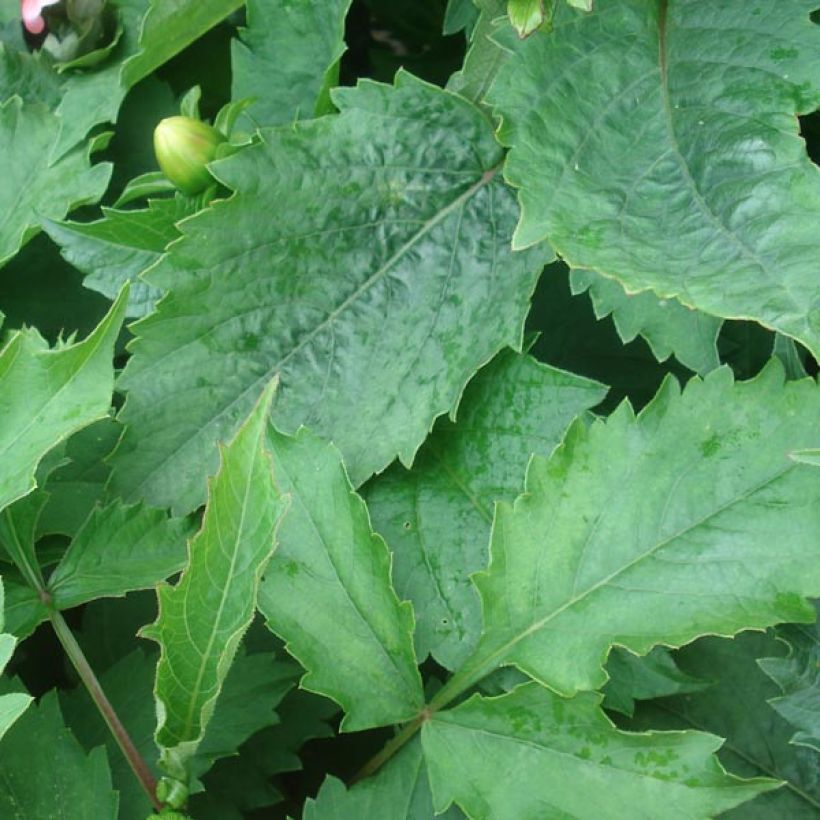

Plant habit
Flowering
Foliage
Botanical data
Dahlia
Berliner Kleene
Asteraceae
Dahlia
Cultivar or hybrid
Planting and care
The Dahlia 'Berliner Kleene' is easy to grow in all regions. For abundant flowering, it is good to follow a few simple rules. Plant the tubers in a sunny location after the last frost; rich, fresh, well-drained soil is perfect. However, stagnant moisture would promote tuber rot. Feel free to amend the soil with compost and sand if necessary. Work the soil deeply and enrich it, for example, with blood, fish and bone. Place your tuber and crumble the soil well to fill without air pockets. Your dahlia should be covered with about 6 cm (2in) of soil. At the end of planting, water abundantly once and then regularly water for the first six weeks to aid in rooting. Dahlias are sensitive to cold, so they need to be overwintered. In November, the first frosts cause the foliage to turn black, which is the time to dig them up. Carefully unearth the tubers, removing as much soil as possible. Let the foliage dry so that the tubers can replenish their reserves. Then cut the stems to 10 cm (4in). Spread your bulbs in a box of newspaper. Store them in a frost-free, dry, cool, dark place like a garage or attic. In southern regions near the coast, where there are few frosty days per year, it is possible to leave them in place. In this case, cover the soil with a layer of leaves or straw for protection.
Planting period
Intended location
Care
-
, onOrder confirmed
Reply from on Promesse de fleurs
Similar products
Haven't found what you were looking for?
Hardiness is the lowest winter temperature a plant can endure without suffering serious damage or even dying. However, hardiness is affected by location (a sheltered area, such as a patio), protection (winter cover) and soil type (hardiness is improved by well-drained soil).

Photo Sharing Terms & Conditions
In order to encourage gardeners to interact and share their experiences, Promesse de fleurs offers various media enabling content to be uploaded onto its Site - in particular via the ‘Photo sharing’ module.
The User agrees to refrain from:
- Posting any content that is illegal, prejudicial, insulting, racist, inciteful to hatred, revisionist, contrary to public decency, that infringes on privacy or on the privacy rights of third parties, in particular the publicity rights of persons and goods, intellectual property rights, or the right to privacy.
- Submitting content on behalf of a third party;
- Impersonate the identity of a third party and/or publish any personal information about a third party;
In general, the User undertakes to refrain from any unethical behaviour.
All Content (in particular text, comments, files, images, photos, videos, creative works, etc.), which may be subject to property or intellectual property rights, image or other private rights, shall remain the property of the User, subject to the limited rights granted by the terms of the licence granted by Promesse de fleurs as stated below. Users are at liberty to publish or not to publish such Content on the Site, notably via the ‘Photo Sharing’ facility, and accept that this Content shall be made public and freely accessible, notably on the Internet.
Users further acknowledge, undertake to have ,and guarantee that they hold all necessary rights and permissions to publish such material on the Site, in particular with regard to the legislation in force pertaining to any privacy, property, intellectual property, image, or contractual rights, or rights of any other nature. By publishing such Content on the Site, Users acknowledge accepting full liability as publishers of the Content within the meaning of the law, and grant Promesse de fleurs, free of charge, an inclusive, worldwide licence for the said Content for the entire duration of its publication, including all reproduction, representation, up/downloading, displaying, performing, transmission, and storage rights.
Users also grant permission for their name to be linked to the Content and accept that this link may not always be made available.
By engaging in posting material, Users consent to their Content becoming automatically accessible on the Internet, in particular on other sites and/or blogs and/or web pages of the Promesse de fleurs site, including in particular social pages and the Promesse de fleurs catalogue.
Users may secure the removal of entrusted content free of charge by issuing a simple request via our contact form.
The flowering period indicated on our website applies to countries and regions located in USDA zone 8 (France, the United Kingdom, Ireland, the Netherlands, etc.)
It will vary according to where you live:
- In zones 9 to 10 (Italy, Spain, Greece, etc.), flowering will occur about 2 to 4 weeks earlier.
- In zones 6 to 7 (Germany, Poland, Slovenia, and lower mountainous regions), flowering will be delayed by 2 to 3 weeks.
- In zone 5 (Central Europe, Scandinavia), blooming will be delayed by 3 to 5 weeks.
In temperate climates, pruning of spring-flowering shrubs (forsythia, spireas, etc.) should be done just after flowering.
Pruning of summer-flowering shrubs (Indian Lilac, Perovskia, etc.) can be done in winter or spring.
In cold regions as well as with frost-sensitive plants, avoid pruning too early when severe frosts may still occur.
The planting period indicated on our website applies to countries and regions located in USDA zone 8 (France, United Kingdom, Ireland, Netherlands).
It will vary according to where you live:
- In Mediterranean zones (Marseille, Madrid, Milan, etc.), autumn and winter are the best planting periods.
- In continental zones (Strasbourg, Munich, Vienna, etc.), delay planting by 2 to 3 weeks in spring and bring it forward by 2 to 4 weeks in autumn.
- In mountainous regions (the Alps, Pyrenees, Carpathians, etc.), it is best to plant in late spring (May-June) or late summer (August-September).
The harvesting period indicated on our website applies to countries and regions in USDA zone 8 (France, England, Ireland, the Netherlands).
In colder areas (Scandinavia, Poland, Austria...) fruit and vegetable harvests are likely to be delayed by 3-4 weeks.
In warmer areas (Italy, Spain, Greece, etc.), harvesting will probably take place earlier, depending on weather conditions.
The sowing periods indicated on our website apply to countries and regions within USDA Zone 8 (France, UK, Ireland, Netherlands).
In colder areas (Scandinavia, Poland, Austria...), delay any outdoor sowing by 3-4 weeks, or sow under glass.
In warmer climes (Italy, Spain, Greece, etc.), bring outdoor sowing forward by a few weeks.































